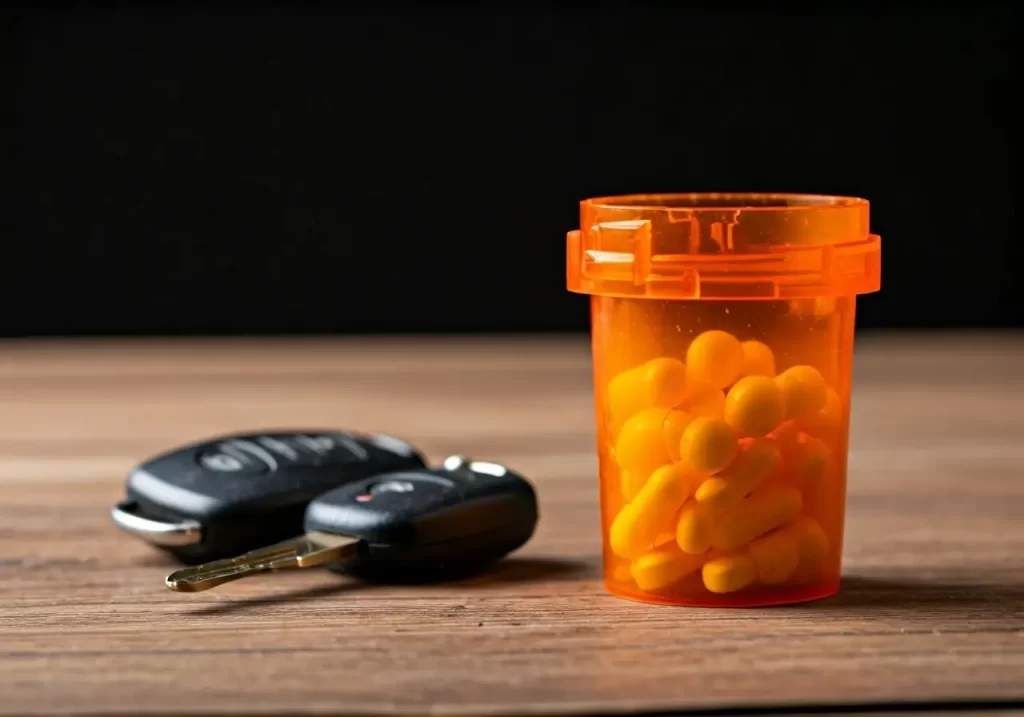Navigating the complexities of New Jersey’s driving laws can be daunting, especially when it comes to understanding how these laws intersect with prescription drug use. While many drivers are aware that driving under the influence of alcohol is illegal, the implications of driving while using prescription medication can seem less clear. This blog aims to shed light on whether NJ DWI laws apply to prescription drugs.
What Are NJ DWI Laws?
New Jersey DWI (Driving While Intoxicated) laws prohibit operating a vehicle while impaired by alcohol, illegal drugs, or any other substances that affect driving ability. These laws are crucial for maintaining road safety and preventing incidents that can result in severe injuries or fatalities. Under certain circumstances, drivers are required to undergo testing for substance use if suspected of impairment. Testing typically involves breath, blood, or urine samples, which are analyzed to determine the presence and concentration of intoxicants like alcohol or controlled substances Michele Finizio provides further insights about prescription drugs and their implications. It’s important to remember that DWI laws are not limited solely to alcohol consumption but extend to any substance that influences one’s driving capabilities adversely.
Defining Impairment Under NJ DWI Laws
In NJ, impairment is defined as the loss of clear mental or physical capabilities essential for safe driving, regardless of the substance causing it. Impaired drivers often show signs such as slowed reaction times, lack of coordination, or difficulties in maintaining focus. New Jersey’s laws define impairment in a way that encompasses not just the physical symptoms but also the mental state, which might include drowsiness or confusion. Importantly, the legality of the ingestion of the substance doesn’t alter its potential to impair one’s abilities. A legally prescribed medication can still lead to a DWI charge if it impairs the driver. Thus, understanding these nuances is vital for any driver on the state’s roads.
Do Prescription Drugs Count as Impairing Substances?
Yes, prescription drugs are considered impairing substances if they affect a person’s ability to drive. NJ DWI laws apply to any substance that can result in driving impairment. This includes legally prescribed medications that might cause drowsiness, blurred vision, or cognitive impairment, all of which can impact your ability to operate a vehicle safely. The effect of these substances varies significantly across different individuals, highlighting the importance of understanding one’s reactions to any new medication as detailed by Michele Finizio. Such laws are designed to uphold public safety, balancing the legality of medication use with the potential risks it poses on the road.
Common Prescription Drugs That May Impair Driving
Certain medications, such as opioids, benzodiazepines, and sleep aids, can significantly impair one’s cognitive and motor functions, posing a risk to safe driving. Opioids, commonly prescribed for pain relief, can lead to dizziness or drowsiness. Benzodiazepines, often used to treat anxiety or insomnia, may cause sedation or confusion. Even over-the-counter medications like antihistamines, used in allergy treatments, have been known to impair driving abilities because of their sedative effects. It’s critical for individuals using these medications to be aware of the potential side effects and avoid driving if any impairment is suspected.
Before operating a vehicle, it’s prudent to discuss with a medical professional how your specific medication might interact with your physical and mental state. A healthcare provider can offer tailored advice regarding the safety of driving under given dosages and possibly suggest alternatives if a medication’s side effects pose significant risks to driving.
Legal Consequences of Driving Under the Influence of Prescription Drugs
Drivers found impaired due to prescription drugs can face the same legal penalties as those driving under the influence of alcohol, including fines, license suspension, and potential jail time. The penalties reflect the high risk posed to public safety, as driving under influence can lead to catastrophic accidents. Notably, if a driver cannot produce a prescription upon request, they may face additional charges related to possession of controlled substances.
Engaging an attorney skilled in New Jersey DUI laws can be crucial if faced with a DWI charge under these circumstances. Legal representation helps in navigating the complex judicial process, potentially mitigating the penalties or challenging the charges based on improperly conducted field sobriety tests or improper procedural adherence during arrest. South Jersey DUI excels in providing legal insights specific to these delicate issues, ensuring you’re equipped to handle the legal nuances.
Tips for Safe Driving While on Prescription Medications
Consult with healthcare providers about medication effects, read warning labels, and avoid driving if advised. It’s essential to always err on the side of caution. Awareness of one’s own body’s response to medication is as crucial as understanding the legislation. Moreover, alternative transportation modes should be considered if the medication’s side effects might influence driving safety—think public transport or rideshare services.
Regularly reviewing current prescriptions, especially when used in combination with other drugs, benefits you in anticipating any compounded effects. Maintaining an open dialogue with your physician can provide clarity on what to expect from prolonged use of a prescription drug, ensuring compliance with New Jersey’s stringent DWI regulations.
Understanding the Impact of Prescription Drugs on NJ DWI Laws
In summary, NJ DWI laws do indeed extend to impairment caused by prescription drugs. It’s crucial for drivers to understand how their medications might affect their ability to drive and to seek guidance from healthcare professionals. By staying informed and making responsible choices, drivers can help ensure they remain safe and compliant with the laws, thus preventing potential legal repercussions and enhancing road safety.


